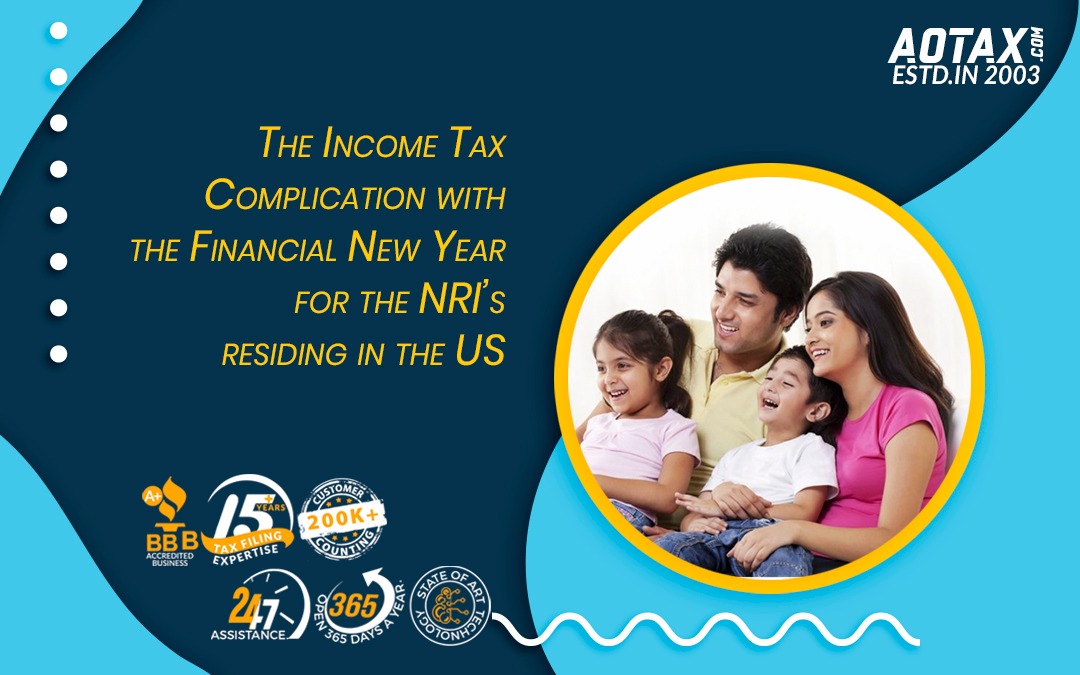
Updated Norms For Global Tax Filing for NRI’s Residing In the US
Updated Norms For Global Tax Filing for NRI’s Residing In the US
The tax liability of an individual in India relies on the residential status of the individual. Taxpayers who qualify as resident Indians are taxed a bit differently than taxpayers who qualify as non-residents. While the definition of resident and non-resident has been around for quite some time, the Income Tax Department only recently has started looking into it with a lot of scrutiny. Global Tax Filing For NRI’s Residing In The US.
The following conditions will help you to determine whether you qualify as a resident or non-resident.
- Individuals who have stayed for a minimum of 182 days in the current financial year, or
- Individuals who have stayed for a minimum of 60 days in the current financial year and a total of 365 days in the previous 4 years, qualify as residents.
If you do not meet the above conditions, you are a non-resident Indian. The IT department has started looking into the residential status of individuals and it is the reason why quite a few NRIs have been receiving notices from the IT department. The tax implications are one of the major reasons why residential status is important. While residents are taxed on their global income, non-residents only have to pay taxes on the income that is generated or accrued in India.
New Forms
India and the USA have signed the DTAA or the Double Taxation Avoidance Agreement. This agreement ensures that taxpayers do not end up paying double taxes on the same income in both countries. There have been certain changes as far as claiming tax relief under the DTAA is concerned. Individuals who benefit from the DTAA will now have to furnish additional details before being able to claim the benefits.
Taxpayers now much provide additional details to the Income Tax department such as the Tax Identification Number of India, all the assets that they hold both in India as well as the USA. The directors or shareholders of an unlisted organization must disclose the same in their tax returns along with the Permanent Account Number of the company in question. NRIs must now also mention the number of days that they have stayed in the country versus the number of days that they have stayed out of the country.
The tax reforms intended to bring about more transparency to the tax filing process by disclosing additional details. And this is particularly for individuals who claim benefits under the treaty signed between the two countries. By implementing these changes, the Income Tax department hopes to reduce the need for further investigations by the tax authorities.
As per the new norms, residents now have to provide additional details of the salary received, its breakdown, any unlisted securities that they hold, list of agricultural land that they hold and the income generated from it, should it exceed a certain threshold, any donations made, etc.
There haven’t been any changes to ITR-1, which is primarily for individuals whose annual income doesn’t exceed INR 50 lakhs. This is for individuals who draw a salary and have a house apart from other income sources such as interests earned and income from agriculture up to INR 5,000. ITR 2, 3, 5, 6 and 7 have undergone minor changes.
ITR-2 is for taxpayers and HUFs who do not make any profits or gains from a business while ITR-3 is for individuals and HUFs who make profits and gains from business or their profession. Thus, it is essential that you take some time to access the right ITR before you can file your taxes to ensure that you do not receive any notification or notice from the IT Department.






Recent Comments